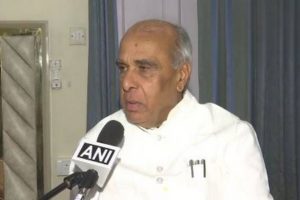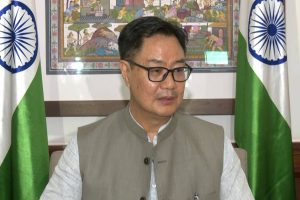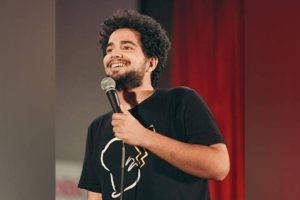Underscoring that AAP leader Manish Sisodia has deep roots in society and there is no possibility of fleeing away, the Supreme Court on Friday granted bail to AAP leader Manish Sisodia, observing that the conclusion of the trial will take a long time as there are 493 witnesses, thousands of pages of documents and over a lakh pages of digitised documents.
The top court also said that the trial courts and the High Courts should recognize the principle that “bail is rule and jail is the exception”.
“It is high time that the trial courts and the High Courts should recognize the principle that bail is the rule and jail is the exception,” the top court said.
“In the present case, in the ED matter as well as the CBI matter, 493 witnesses have been named. The case involves thousands of pages of documents and over a lakh pages of digitized documents. It is thus clear that there is not even the remotest possibility of the trial being concluded in the near future. In our view, keeping the appellant behind bars for an unlimited period of time in the hope of speedy completion of trial would deprive his fundamental right to liberty under Article 21 of the Constitution,” the top court said.
The prolonged incarceration before being pronounced guilty of an offence should not be permitted to become punishment without trial, the top court reckoned, as it acknowledged that Sisodia has remained behind bars for many months.
The top court also underscored that Sisodia had been deprived of his right to speedy trial.
A bench of justices, BR Gavai and KV Viswanathan, also imposed various conditions on Sisodia, including furnishing bail bonds for a sum of Rs 10 lakh with two sureties of the like amount. The top court also directed Sisodia to surrender his passport with the Special Court and to report to the Investigating Officer every Monday and Thursday between 10-11 am. The top court also directed that Sisodia shall not make any attempt either to influence the witnesses or to tamper with the evidence.
While granting bail the court took note of the various facts which includes Sisodia deep roots in the society and no possibility of him fleeing away from the country.
“In the present case, the appellant (Sisodia) is having deep roots in society. There is no possibility of him fleeing the country and not being available to face the trial. In any case, conditions can be imposed to address the concern of the State,” the top court said.
The top court further observed that, over a period of time, the trial courts and the High Courts have forgotten a very well-settled principle of law that bail is not to be withheld as a punishment.
“From our experience, we can say that it appears that the trial courts and the High Courts attempt to play safe in matters of grant of bail. The principle that bail is a rule and refusal is an exception is, at times, followed in breach. On account of non-grant of bail even in straight forward open and shut cases, this Court is flooded with huge number of bail petitions thereby adding to the huge pendency. It is high time that the trial courts and the High Courts should recognize the principle that “bail is rule and jail is exception,” the top court said.
The top court said that on account of a long period of incarceration running for around 17 months and the trial not having commenced, the appellant, Sisodia, has been deprived of his right to a speedy trial.
“As observed by this Court, the right to speedy trial and the right to liberty are sacrosanct rights. on denial of these rights, the trial court as well as the High Court ought to have given due weightage to this factor,” the top court said.
“If the investigation itself was to conclude on or before July 3, 2024, the question is how could the trial have commenced prior to that? If the investigation itself was to conclude after a period of 8 months from the date of the first order of this Court, there was no question of the trial being concluded within a period of 6-8 months from the date of the first order of this Court. We find that both the High Court and the trial court have failed to take this into consideration,” the top court said.
“In that view of the matter, we find that the finding of the learned trial judge that it is the appellant who is responsible for delaying the trial is not supported by the record,” the top court said.
“The learned Single Judge of the High Court endorses the finding of the trial court on the ground that the accused persons have taken three months’ time from October 19, 2023, to January 19, 2024, for inspection of “un-relied upon documents” despite repeated directions from the learned trial court to conclude the same expeditiously. It is to be noted that there are around 69,000 pages of documents involved in both the CBI and the ED matters,” the top court said.
“Taking into consideration the huge magnitude of the documents involved, it cannot be stated that the accused is not entitled to take a reasonable time for inspection of the said documents. In order to avail the right to fair trial, the accused cannot be denied the right to have inspection of the documents including the un-relied upon documents,” the top court said.
Sisodia has filed a plea seeking a revival of his plea challenging the Delhi High Court’s order on May 21.
In February 2023, Sisodia was arrested by the CBI for alleged irregularities in the framing and implementation of now-scrapped Delhi’s new excise policy.
The policy was withdrawn amid allegations of foul play by the opposition. Sisodia is currently in judicial custody.
According to the CBI, Sisodia had played the most vital role in the criminal conspiracy and had been deeply involved in the formulation and implementation of the said policy to ensure the achievement of the objectives of the said conspiracy.





